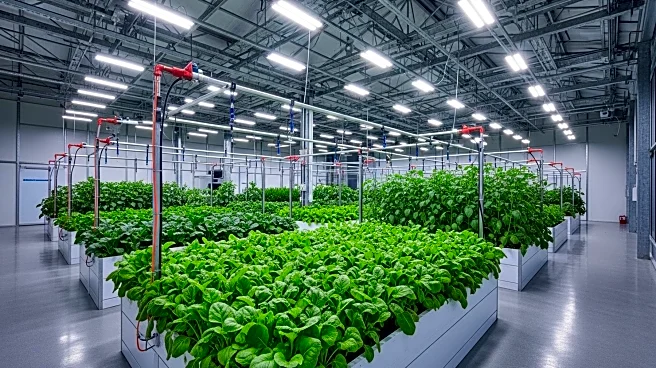What is the story about?
What's Happening?
The World Agri-Tech Innovation Summit is set to return to Dubai on December 8-9, 2025, bringing together over 300 senior decision-makers from the agri-food value chain. The summit aims to accelerate climate-resilient agriculture and strengthen food security by showcasing scalable innovations in precision farming, controlled environment agriculture, and drought-resilient crops. Key topics include regional innovation, agri-talent development, mobilizing capital for climate-smart agriculture, AI, data and precision farming, and water efficiency. The event seeks to drive investment and partnerships that will shape the future of sustainable food systems across the MEASA region.
Why It's Important?
The summit's focus on climate-resilient agriculture is crucial as the world faces increasing challenges related to climate change and food security. By highlighting innovations in precision farming and drought-resilient crops, the event aims to provide solutions that can be implemented globally to ensure sustainable food production. The involvement of senior decision-makers and experts underscores the importance of collaborative efforts in addressing these challenges. The summit also serves as a platform for fostering partnerships and investments that can lead to significant advancements in agricultural technology and practices.
What's Next?
Participants at the summit are expected to engage in discussions and collaborations that could lead to new projects and initiatives in climate-smart agriculture. The event may result in increased investment in agricultural technologies and practices that promote sustainability. Stakeholders from various sectors, including government, industry, and academia, are likely to explore opportunities for implementing the innovations showcased at the summit in their respective regions.
Beyond the Headlines
The summit's emphasis on inclusive finance and digital marketplaces highlights the potential for technology to democratize access to agricultural resources and markets. This could lead to more equitable food systems and empower small-scale farmers by providing them with tools and platforms to compete in the global market. Additionally, the focus on circular and regenerative agriculture aligns with broader environmental goals, promoting practices that restore and maintain ecological balance.

















